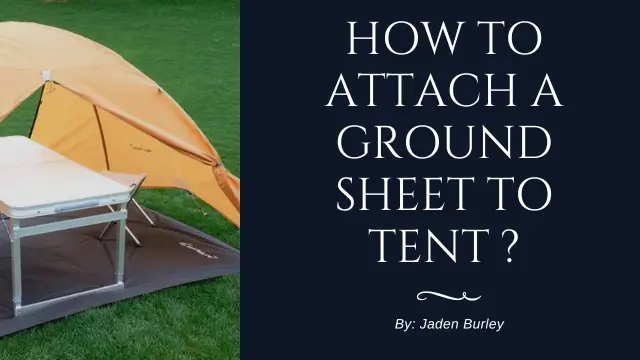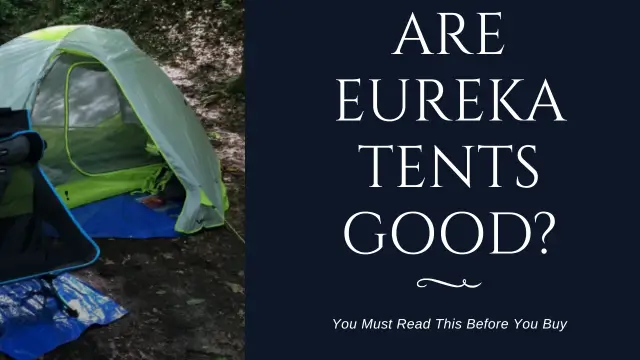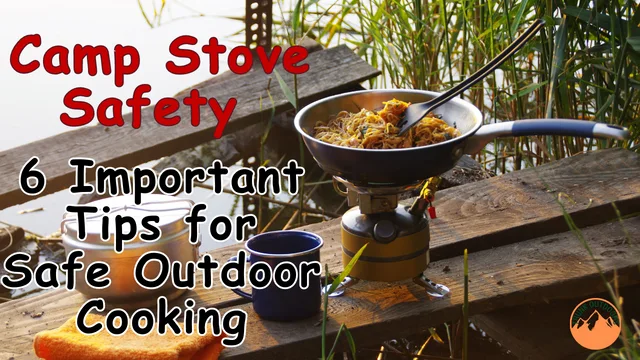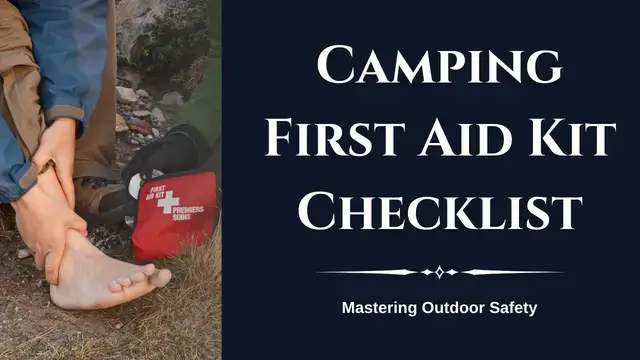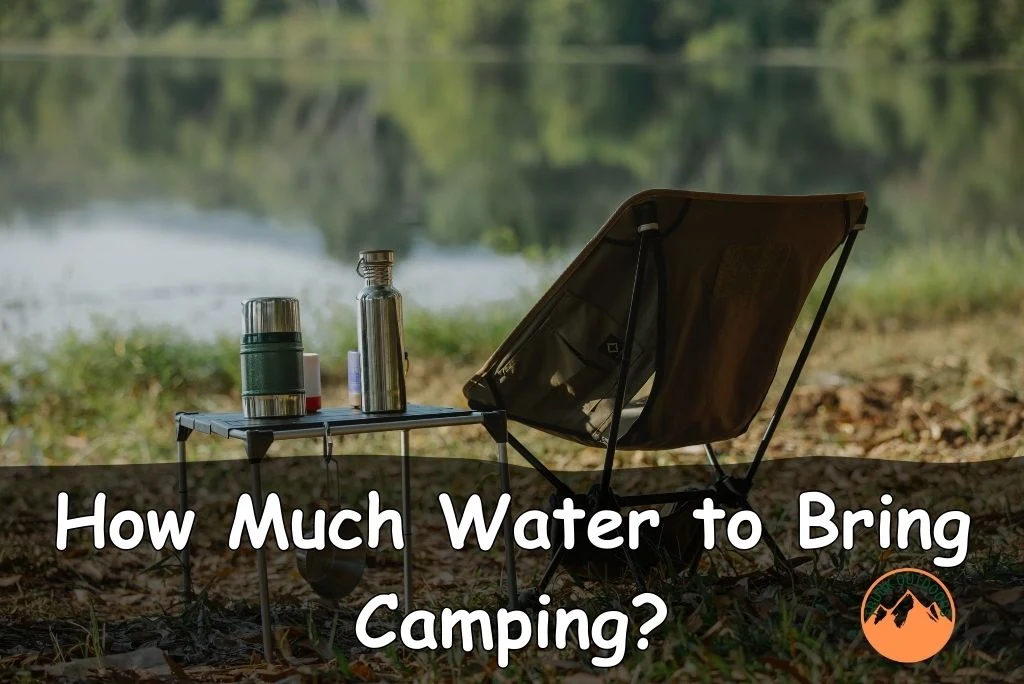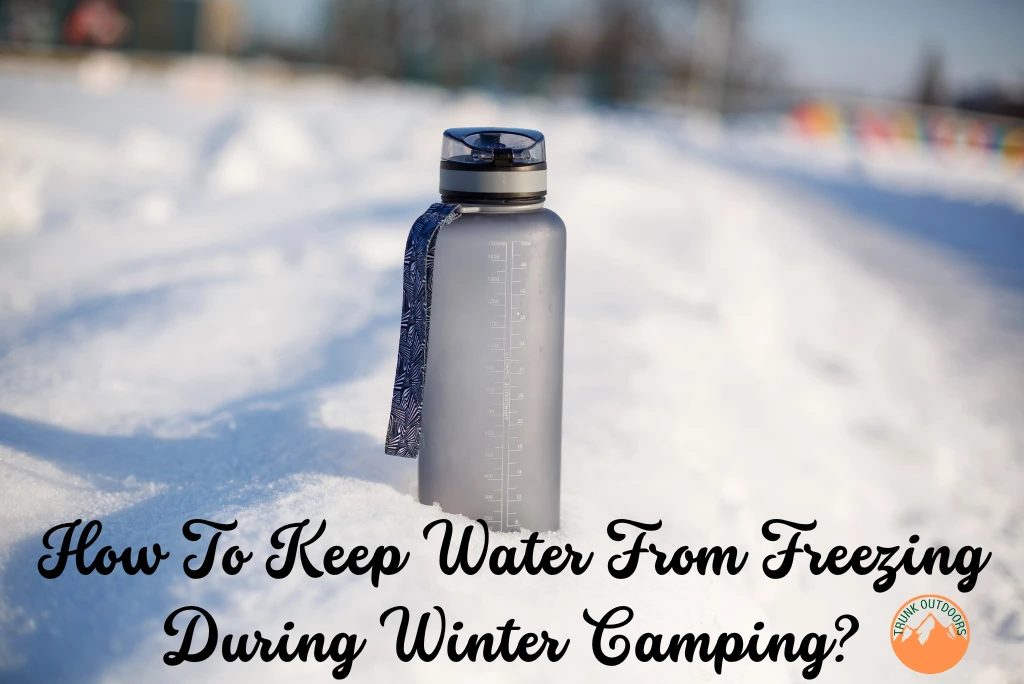Camping With a Puppy: Safe & Enjoyable Tips
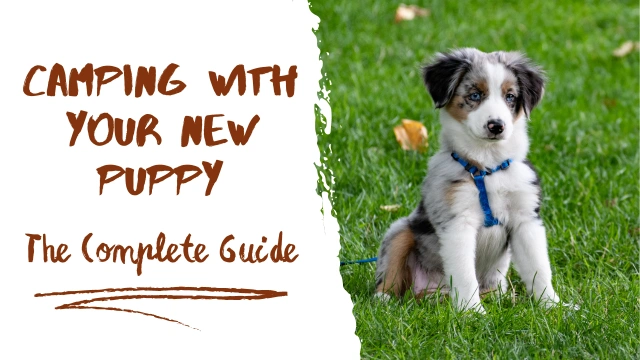
Congratulations on your new puppy! Taking them camping can be an incredible experience for both of you. But how do you navigate the wild world of first-time camping with a puppy? Don’t worry, we’ve got you covered.
In this guide, we will delve into the wonderful realm of camping with puppies and share valuable tips to make your adventure unforgettable. From essential gear to training techniques, we’ll explore everything you need to know about camping with dogs.
So grab your tent and leash because it’s time to embark on an epic journey in the great outdoors with your lovable companion. Let’s dive into some paw-some camping tips for puppies.
If you’re eager to learn more about our camping tips, check out some of these articles:
How to Replace Tent Zipper With Velcro
Puppy Training and Preparation for Camping
Before embarking on your camping expedition, it’s essential to get your puppy ready for this unique experience of camping with a new puppy. Here are some tips:
- Gradual Introductions: Start by introducing your puppy to the outdoors in a controlled environment. Take short walks or visits to local parks to familiarize them with different sounds, smells, and sights they may encounter during camping.
- Basic Training: Teach your puppy basic commands such as sit, stay, come, and leave it. These commands will be useful in ensuring their safety during camping trips. Practice these commands in different environments to reinforce their training.
- Socialization: Expose your puppy to other dogs, people, and various outdoor settings. This will help them become comfortable and well-behaved in the presence of strangers, which is crucial for a camping trip where they may encounter other campers and wildlife.
- Crate Training: Consider crate training your puppy before the camping trip. A crate can provide them with a safe and familiar space, whether in the tent or in the car during travel. Make sure the crate is comfortable and introduce it gradually to create positive associations.
- Vaccinations and Health Check: Ensure your puppy is up to date on vaccinations and has received a thorough health check from a veterinarian. It’s important to protect them from common outdoor hazards, such as parasites or diseases they may encounter during camping.
- Potty Training: Ensure your puppy is fully potty trained before going camping. Practice good potty habits at home and continue reinforcing them during the trip. Locate appropriate areas for your puppy to relieve themselves while camping, away from water sources and camping areas.
Check out this article to learn about: 10 Best Dog Behaviorist Companies in the US
Finding a Dog-Friendly Campground
Finding a dog-friendly campground takes research and planning. Here’s how to find the perfect campground for you and your dog:
Check Campground Policies:
Review the policies of interested campgrounds. Visit their websites or call to ask about pet rules, breed restrictions, leashes, and pet areas. Choose a dog-friendly campground that fits your needs.
Read Online Reviews:
Look for reviews from pet owners on camping and dog-related websites or forums. Reviews show how pet-friendly the campground is, the available amenities, and any potential issues.
Research Pet Amenities:
Find out what amenities the campground offers for pets, like dog parks, trails, or pet wash stations. These extras provide exercise and socialization opportunities for your dog.
Consult Pet-Friendly Directories:
Use online directories specializing in pet-friendly campgrounds. They provide detailed information on facilities, pet policies, and nearby attractions. Popular directories include BringFido, GoPetFriendly, and RoverPass.
Contact Local Tourism Offices:
Get in touch with local tourism offices or visitor centers in your camping area. They can provide information on nearby dog-friendly campgrounds and offer recommendations or tips for exploring with your dog.
Join Online Pet Communities:
Engage with online communities or forums for pet owners and campers. Ask for recommendations and advice. Find these communities on social media or in specialized camping and pet forums.
Plan Ahead and Make reservations.
Once you’ve found dog-friendly campgrounds that meet your criteria, make reservations in advance. Popular campgrounds fill up quickly, especially during peak seasons. Secure a spot for you and your furry friend.
To respect campground rules and be a responsible pet owner. Keep your dog leashed when required, clean up after them, and consider other campers’ comfort and safety. Enjoy your camping adventure with your dog!
Camping Essentials for Puppies
When going camping with a puppy, it’s important to pack some essential items to ensure their comfort, safety, and well-being. Here are some camping essentials for puppies:
- Leash and Collar: A sturdy leash and a properly fitting collar with identification tags are crucial for keeping your puppy secure and identifiable at the campsite.
- Food and Water: Pack enough of your puppy’s regular food for the duration of the camping trip. It’s essential to maintain their regular diet to avoid digestive issues. Carry portable food and water bowls for feeding and hydrating your puppy. Learn How Much To Feed A Puppy By Weight.
- Bedding and Crate: Bring comfortable bedding or a blanket for your puppy to sleep on. If your puppy is crate-trained, consider bringing their crate to provide them with a familiar and secure space to rest.
- Toys and Chews: Pack your puppy’s favorite toys and chews to keep them entertained and mentally stimulated during downtime at the campsite. This can also help prevent them from getting bored and resorting to destructive behaviors.
- Puppy First Aid Kit: A basic first aid kit specifically designed for dogs is essential. Include items such as antiseptic wipes, bandages, tweezers for removing ticks or splinters, and any necessary medications your puppy may require.
- Tick and Flea Protection: Camping exposes your puppy to the possibility of encountering ticks and fleas. Use the appropriate tick and flea preventive measures recommended by your veterinarian to protect your puppy from these parasites.
- Puppy-Friendly Bug Spray and Sunscreen: Depending on the camping destination and time of year, you may need bug spray and sunscreen specifically formulated for puppies. Consult your veterinarian for recommendations on how to protect your puppy from bites and sunburn.
The specific needs of your puppy may vary, so tailor your camping essentials accordingly. Be attentive to your puppy’s behavior and comfort during the trip, and always prioritize their safety and well-being.
Having Fun When Camping With Your Puppy
Camping is not just about survival; it’s also about creating unforgettable moments filled with joy and fun for both humans and dogs alike!
- Engage in Interactive Games: Pack toys that can keep your pup entertained, like chew toys, balls, or frisbees—ideal for long hikes at rest stops along trails too!
- Go Exploring Together: Take adventurous hikes together, allowing exploration of nature’s wonders while enjoying each other’s company!
- Capture Memories: Bring a camera along to capture adorable moments between you two—pictures worth cherishing forever!
Cuddling Your Puppy in the Tent During the Night
While camping, nighttime can be a bit unsettling for puppies as they adjust to unfamiliar surroundings.
Providing them with comfort and reassurance is essential for a peaceful night’s sleep. Here are some tips on cuddling your puppy in the tent:
1. Create a Cozy Sleeping Area:
Set up a soft blanket or cozy dog bed inside the tent where your pup can curl up comfortably. Familiar scents from home (such as their favorite toy or bedding) can also help create a sense of security.
2. Share Your Sleeping Bag or Pad:
If space allows, consider sharing part of your sleeping bag or pad with your puppy. The warmth and closeness will provide them with added comfort throughout the night.
3. Provide Calming Sounds:
Bring along white noise machines or play gentle nature sounds that mimic outdoor noises such as rustling leaves or distant waves crashing onshore; this can help mask any potentially alarming sounds around the campsite.
4. Maintain Routine Sleep Habits:
Stick to regular bedtime routines you have established at home, like taking an evening walk before settling down in the tent together—familiarity breeds relaxation!
5. Establish Boundaries Inside The Tent:
While snuggling may feel great, setting boundaries within the tent ensures everyone has enough space for restful sleep.
Finding what works best for both of you might take some trial and error, but once established, it creates lasting memories and fosters mutual trust between pet parent and pup!
Safety Consideration When Camping With Your Puppy
Ensuring your puppy’s safety should always be a top priority throughout the trip! Here are some precautions:
- Secure the Campsite: Set up your campsite in a way that keeps your puppy safe. Ensure they cannot escape from the tent or RV by using appropriate barriers or crates. Check for any openings or gaps where they could get stuck or injured.
- Leash and Supervision: Always keep your puppy on a leash, unless in designated off-leash areas. This prevents them from wandering off, encountering dangerous wildlife, or getting lost. Supervise your puppy at all times to ensure their safety and prevent them from ingesting harmful substances or plants.
- Temperature Considerations: Be aware of the temperature and weather conditions during your camping trip. Puppies are more susceptible to extreme temperatures, so provide shade and fresh water to prevent overheating. In colder weather, ensure your puppy stays warm with suitable bedding or clothing.
- Protect from Environmental Hazards: Be mindful of potential hazards in the camping area, such as toxic plants, sharp objects, or bodies of water that may pose a danger to your puppy. Keep them away from open flames, campfires, or hot cooking equipment to prevent burns.
- Avoid Wildlife Interactions: Keep your puppy away from wildlife and discourage them from approaching animals. Wild animals may carry diseases, be aggressive, or pose a threat to your puppy’s safety. Respect their natural habitat and maintain a safe distance.
- Potty and Waste Disposal: Establish designated areas for your puppy to relieve themselves, away from water sources and camping areas. Bring waste bags to clean up after them promptly, and dispose of waste properly to maintain cleanliness and prevent contamination.
FAQs
Yes, you can! Just ensure their safety and comfort. Provide a secure space, food, water, and regular potty breaks.
Prepare with cozy bedding, use a crate or playpen inside the tent, keep them close to you, and be ready for bathroom trips.
Dogs can handle a range of temperatures between 45°F (7°C) to 85°F (29°C), depending on breed, size, age, and health. Monitor closely and provide appropriate shelter or gear.
Options include inside the tent, in a crate or playpen, or in an outdoor dog enclosure. Choose based on your preferences and their comfort.
Conclusion:
In conclusion, camping with a puppy can be an incredible experience if you follow these steps:
- Gradually introduce your puppy to the outdoors and train them for camping.
- Choose a dog-friendly campground that suits both you and your furry friend.
- Pack essential items such as leashes, food, water, bedding, waste bags, toys, and first aid supplies.
- Protect your puppy from ticks, fleas, bugs, and sunburns using appropriate preventive measures.
- Prioritizing safety measures and creating moments filled with joy and fun
With these tips in mind, you’ll create paw-some memories while camping with your dog.
